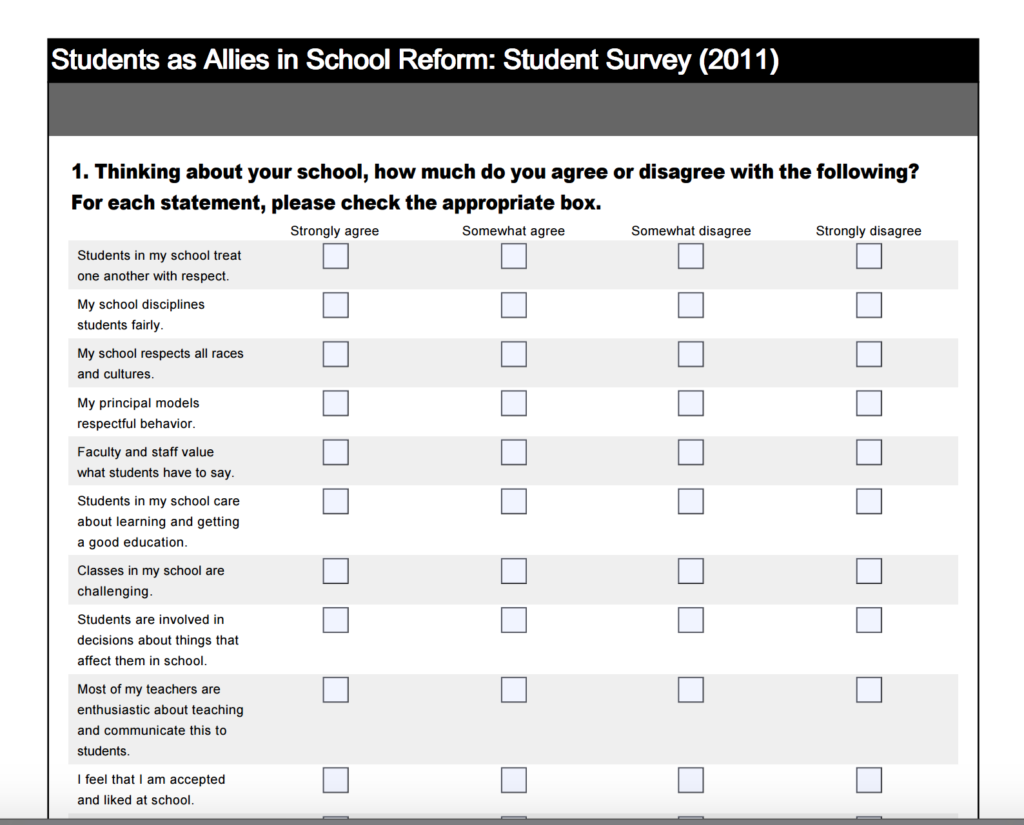Service Learning: Powerful Learning with Public Purpose

Day in and out, What Kids Can Do aims to spread a more capacious view of “what kids can do” when given the opportunities and supports they deserve-a vision that makes room for real-world problem solving, teamwork, character and citizenship, learning from mistakes, creativity, social justice, and contribution. Service learning, at its best, provides a… Read More ›
Global Best Practices

This tool is a practical, action-oriented self-assessment for secondary schools. It was developed for the New England Secondary School Consortium. The tool grew out of a recognition that national borders no longer define the knowledge, skills, and habits of mind that students need for success, and that New England’s high schools may need assistance reviewing… Read More ›
The Glossary of Education Reform

The Glossary of Education Reform (edglossary.org) is a public, online resource that defines and describes major terms, concepts, and strategies in public-education reform. The Glossary of Education Reform was created to help journalists, parents, and community members-anyone with an interest or investment in our public schools-understand some of the major reform concepts being discussed by… Read More ›
Documenting Stories of Immigration in Your Community

This resource provides information on how to empower students to become more engaged with the issue of immigration and provides a manual for teachers and students for getting started. Source Organization: What Kids Can Do Visit the Resource
Teacher Design for Education

Using hands-on activities and project-based challenges, Teacher Design for Education (TD4Ed) harnesses the creativity and problem-solving skills educators use everyday to solve some of the toughest problems within education. Through this curriculum, educators will tap into skills they already have and build new competencies to identify challenges, generate new ideas, and implement solutions. Source Organization:… Read More ›
If I Could Lead A School: A Student-Driven Participatory Design Studio to Re-imagine Education

This Student Experience Lab explores how good design can improve the quality of learning experiences for students by not only listening to the voices of the students but also engaging them in the conceptual development of new systems. 40 young people in Rhode Island tackle the challenge to design a new student experience for a 21st… Read More ›
A Step-by-Step Guide to Personalized Learning

This report offers a six step approach on how to create a classroom environment that gives each learner a voice and choice. It first provides the background on what is and what is not “Personalized Learning.” Then the authors provide a condensed version of their “Stages of Personalized Learning,” recognizing that achieving personalization within a… Read More ›
The College Pathways Tools Series

The complete tool set provides all the Beating-the-Odds study tools in one publication: a framework and rubric, a student survey, a focus group protocol for students, and a focus group protocol and parent handout for families. Together, these tools enable high schools and their partners to get a multifaceted look at how well they are preparing students… Read More ›
Students as Allies in Improving Their Schools: Student and Teacher Surveys

What Kids Can Do worked with schools in 5 cities to support student involvement in reform as part of the”Students As Allies” initiative. They helped students conduct action research, participate in meaningful dialogue, and take action in partnership with adults. The Student and Teacher surveys, which were updated in 2011, can be adapted by student/adult… Read More ›
TIPS For Administrators, Teachers, and Families: How to Share Data Effectively

This document provides strategies for how school leaders & teachers can use data to inform and support student-centered approaches to learning. The tools and strategies (TIPS) included address some of the following: data sharing among teachers, sharing data with and helping families make use of data, and preparing to share data with families. Source Organization: Harvard… Read More ›
Education Technology Implementation Practice Guide

This guide offers a road map for district- and school-wide education technology implementation for leadership teams. It draws on research-based implementation practices and addresses core education technology implementation issues such as: Who is (or should be) included on the leadership team and involved in the process? What are your short- and long-term goals for integrating education… Read More ›
Spotlight: The Changing State of Assessments

This article addresses how formative assessments support teaching and learning as well as how testing is changing in the common-core era. Additionally, it provides arguments on key factors needed to build high-quality assessments. This is a fee-based resource. Source Organization: Education Week VISIT THE RESOURCE